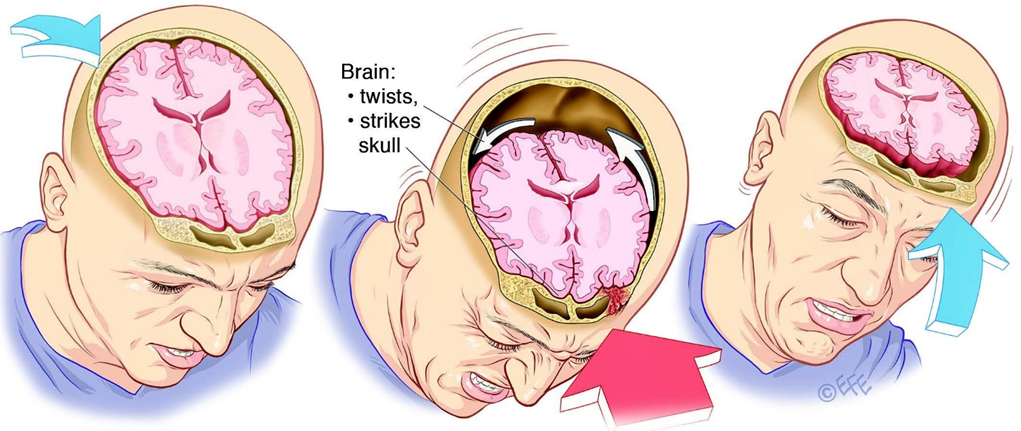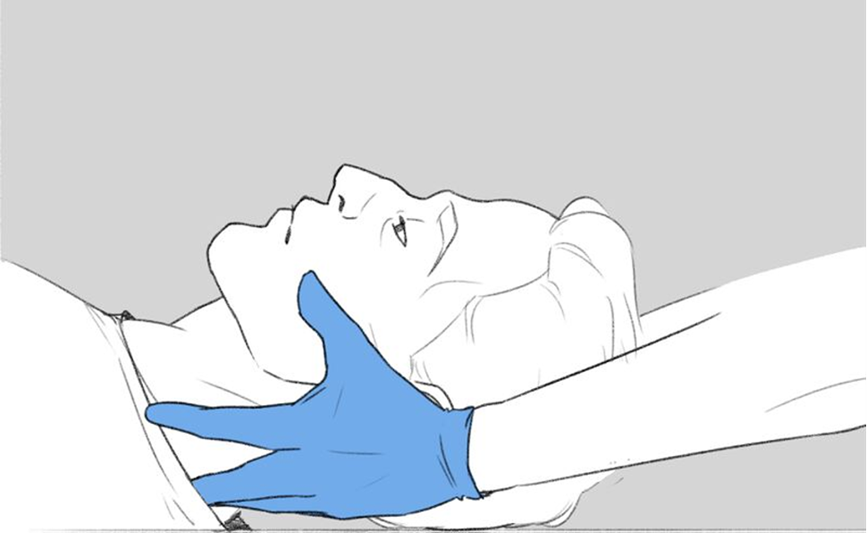A nurse is caring for a client who has a closed-head injury with elevated ICP readings ranging from 16 to 22 mm Hg. Which of the following actions should the nurse take to decrease the potential for raising the client's ICP?
Elevate the client's head on two pillows.
Keep the client well hydrated.
Decrease the noise level in the client's room.
Suction the endotracheal tube frequently.
The Correct Answer is C
Choice A Reason:
Elevating the client's head on two pillows can help reduce ICP by promoting venous drainage from the brain. However, it is important to ensure that the head is not elevated too high, as this can impede venous return and potentially increase ICP. The recommended elevation is typically 30 degrees. While this intervention is beneficial, it is not the most critical action compared to reducing environmental stimuli.
Choice B Reason:
Keeping the client well hydrated is essential for overall health, but excessive hydration can increase ICP by increasing the volume of cerebrospinal fluid and blood within the cranial vault. Fluid management must be carefully monitored to avoid exacerbating ICP. Therefore, while hydration is important, it must be balanced and not excessive.
Choice C Reason:
Decreasing the noise level in the client's room is crucial for minimizing external stimuli that can increase ICP. Noise and other environmental stressors can lead to increased agitation and stress, which in turn can elevate ICP. Creating a calm and quiet environment helps in maintaining a stable ICP and is a non-invasive, easily implementable intervention.
Choice D Reason:
Frequent suctioning of the endotracheal tube can cause transient increases in ICP due to the stimulation and potential for coughing. While suctioning is necessary to maintain airway patency, it should be performed judiciously and only when clinically indicated. Over-suctioning can lead to spikes in ICP and should be avoided.

Nursing Test Bank
Naxlex Comprehensive Predictor Exams
Related Questions
Correct Answer is A
Explanation
Choice A Reason:
Maintaining the cervical collar in place is crucial for a client with a spinal cord injury at the level of C3-4. This action prevents further damage to the spinal cord by immobilizing the neck and maintaining proper alignment. Any movement could exacerbate the injury, potentially leading to more severe neurological deficits or even paralysis.
Choice B Reason:
Asking the client if they remember any events around the time of the injury is not the priority in this situation. While obtaining a history is important, it should not take precedence over stabilizing the spinal cord to prevent further injury. The primary focus should be on ensuring the client's safety and preventing additional harm.
Choice C Reason:
Explaining to the client that they will never be able to walk again is inappropriate and premature. The prognosis for spinal cord injuries can vary widely, and it is essential to provide accurate information based on a thorough assessment and consultation with specialists. Additionally, delivering such news requires sensitivity and should be done in a supportive manner.
Choice D Reason:
Notifying the client's parents that they are in the ED is important for family communication and support. However, it is not the immediate priority. The primary focus should be on stabilizing the client's condition and preventing further injury. Once the client is stabilized, the nurse can then inform the family.

Correct Answer is D
Explanation
Choice A Reason:
Hypotension is not typically a direct manifestation of increased intracranial pressure (ICP). In fact, increased ICP often leads to hypertension as part of Cushing's triad, which includes hypertension, bradycardia, and irregular respiration. Hypotension may indicate other issues such as shock or blood loss but is not a primary indicator of increased ICP.
Choice B Reason:
Tachypnea, or rapid breathing, is not a primary sign of increased ICP. While respiratory changes can occur with increased ICP, they are more likely to present as irregular breathing patterns rather than simply an increased rate. Tachypnea might be seen in conditions like anxiety, pain, or respiratory distress but is not a hallmark of increased ICP.
Choice C Reason:
Bilateral weakness of extremities can occur with increased ICP, especially if there is significant brain swelling or herniation affecting motor pathways. However, it is not the most immediate or specific sign. Other neurological deficits can also cause bilateral weakness, so it is not solely indicative of increased ICP.
Choice D Reason:
Decreased level of consciousness is a critical and primary sign of increased ICP. As pressure within the skull rises, it can compress brain structures and impair function, leading to altered mental status ranging from confusion to coma. Monitoring the level of consciousness is essential in assessing and managing patients with potential increased ICP.
Whether you are a student looking to ace your exams or a practicing nurse seeking to enhance your expertise , our nursing education contents will empower you with the confidence and competence to make a difference in the lives of patients and become a respected leader in the healthcare field.
Visit Naxlex, invest in your future and unlock endless possibilities with our unparalleled nursing education contents today
Report Wrong Answer on the Current Question
Do you disagree with the answer? If yes, what is your expected answer? Explain.
Kindly be descriptive with the issue you are facing.
